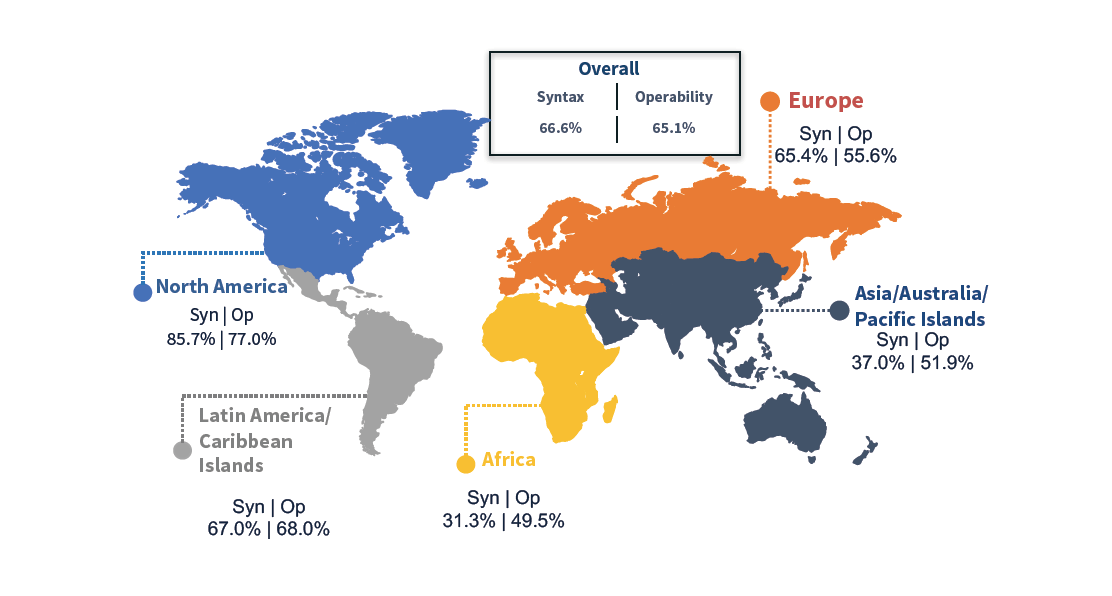LOS ANGELES – 12 December 2016 – ICANN today published the WHOIS Accuracy Reporting System December 2016 report. This latest report of the WHOIS Accuracy Reporting System (ARS) acts as a follow-on to the reports published in June 2016 and December 2015.
Read the Report [PDF, 2.5 MB].
The report explores both the syntax and operability accuracy of WHOIS records in gTLDs as compared to the requirements of the 2009 and 2013 Registrar Accreditation Agreements (RAAs). It also examines the leading types of nonconformances, trends and comparisons of WHOIS accuracy across ICANN regions, RAA versions and gTLD types.
ICANN developed accuracy tests to answer questions about the syntax (format and content) and operability (e.g., does an email sent to the email address provided in the WHOIS record go through?) of a sample of WHOIS records. Then, using statistical methods, syntax and operability accuracy estimates with a 95 percent confidence interval were provided for the population of domains in gTLDs as a whole, as well as for several subgroups of interest.
Key Findings
The analysis found that:
-
Nearly all WHOIS records contain information that can be used to establish immediate contact: In 97 percent of records, at least one email or phone number meets all operability requirements of the 2009 RAA.
-
Approximately 90 percent of email addresses, 72 percent of telephone numbers and 97 percent of postal addresses were operable (see Table 1 below for more information).
Table 1: Overall gTLD Operability Accuracy by Contact Mode (95 percent confidence interval)
Email Telephone Postal Address All 3 Accurate All 3 Contacts (Registrant, Technical, Administrative) Accurate 90.1% ± 0.5% 72.4% ± 0.8% 96.8% ± 0.3% 65.1% ± 0.9% -
In terms of syntax accuracy, approximately 99 percent of email addresses, 89 percent of telephone numbers and 75 percent of postal addresses were found to meet all the requirements of the 2009 RAA (see Table 2 below for more information).
Table 2: Overall gTLD Syntax Accuracy to 2009 RAA Requirements by Contact Mode (95 percent confidence interval)
Email Telephone Postal Address All 3 Accurate All 3 Contacts (Registrant, Technical, Administrative) Accurate 99.6% ± 0.1% 88.5% ± 0.6% 74.7% ± 0.8% 66.6% ± 0.8%
The report also shows a breakdown of accuracy rates by ICANN region (see Figure 1 below for more information).
Figure 1: Overall gTLD Syntax and Operability Accuracy by ICANN Region
Next Steps
Results included in the report have been provided to ICANN's Contractual Compliance team, which will assess the types of errors found and follow up with registrars on potentially inaccurate records. If WHOIS inaccuracy and/or format complaints are created from the WHOIS ARS data, ICANN Contractual Compliance will issue tickets in accordance with the Contractual Compliance Approach and Process [PDF, 292 KB]. Compliance provides updates on a quarterly basis, which include updates on WHOIS ARS tickets and can be found here.
ICANN will begin work on the next WHOIS ARS report in January 2017, with a targeted publication date of early June 2017.
ICANN will host a webinar on 12 January 2017 at 16:00 UTC to review methodology and findings of the report.
View webinar participation information.
Learn more:
- General information on WHOIS
- Phase 2 - June 2016 Report
- Phase 2 - December 2015 Report
- Phase 1 - August 2015 Report [PDF, 1.4 MB]
- Pilot Study Report [PDF, 1.5 MB]
About ICANN
ICANN's mission is to help ensure a stable, secure and unified global Internet. To reach another person on the Internet, you have to type an address into your computer - a name or a number. That address has to be unique so computers know where to find each other. ICANN helps coordinate and support these unique identifiers across the world. ICANN was formed in 1998 as a not-for-profit public-benefit corporation and a community with participants from all over the world. ICANN and its community help keep the Internet secure, stable and interoperable. It also promotes competition and develops policy for the top-level of the Internet's naming system and facilitates the use of other unique Internet identifiers. For more information please visit: www.icann.org.


